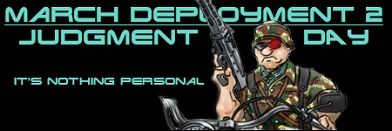Short answer Hitler. Hitler was a corporal only from ww1 and wasn't that good in tactical & modern warfare (Lightning war). All the major success from axis came from their really good generals who planned them and when Hitler didn't try to be general.
But Moscow and Barbarossa.
1. Original main goal was Moscow, it had 3 main drives. a) North to Leningrad, b) Center to Moscow, c) South to Ukraine. From North&South Armies would sweep to surround Moscow after their initial goals had been met. Center was supportive role until Ukraine&Leningrad operations had been succesful.
2. South attack was stalled in Ukraine by major soviet forces and against advise from his generals (They wanted Center to keep driving to Moscow before weather worsen), Hitler ordered to divert forces from Center army to help break southern defense (Kiev Offensive). They isolated and did destroy alot of soviet forces, but it took time from the main drive to Moscow.
3. Leningrad, after Kharkov it was suggested that they would not drive to Leningrad, but push full ahead to Moscow. But again Hitler decided not to hold the offensive to Leningrad, which in the end became a Siege of Leningrad during whole war and had held alot of Axis forces that could have been useful elsewhere at 1941.
4. Weather. 1941 Winter came really early, and Rasputitsa (
https://en.wikipedia.org/wiki/Rasputitsa) slowed/halted the attack to Moscow in Sep-Nov. Buying alot of more time to the soviet disorganised forces to dig in. Early winter did give Axis the chance to advance again, because the cold froze the mud roads so they could use them again.
I am too tired to type too accurately about this, but have read alot of world war 2 documents and books over 20 years. So I do know what I am talking about. So little copy+paste what I tried to say about Hitler vs his generals.
"A majority of Hitler’s senior generals now implored him to scrap Barbarossa in favor of an all-out attack on Moscow. If the Russian capital fell, they argued, it would devastate Russian morale and knock out the country’s chief transportation hub. Russia’s days would surely be numbered.
The decision rested solely with the Supreme Commander.
In what was perhaps his single biggest decision of World War II, Hitler passed up the chance to attack Moscow during the summer of 1941. Instead, he clung to the original plan to crush Leningrad in the north and simultaneously seize the Ukraine in the south. This, Hitler lectured his generals, would be far more devastating to the Russians than the fall of Moscow. A successful attack in the north would wreck the city named after one of the founders of Soviet Russia, Vladimir Lenin. Attacking the south would destroy the Russian armies protecting the region and place vital agricultural and industrial areas in German hands.
Though they remained unconvinced, the generals dutifully halted the advance on Moscow and repositioned troops and tanks away from Army Group Center to aid Army Groups North and South. By late September, bolstered by the additional Panzer tanks, Army Group South successfully captured the city of Kiev in the Ukraine, taking 650,000 Russian prisoners. As Army Group North approached Leningrad, a beautiful old city with palaces that once belonged to the Czars, Hitler ordered the place flattened via massive aerial and artillery bombardments. Concerning the five million trapped inhabitants, he told his generals, “The problem of the survival of the population and of supplying it with food is one which cannot and should not be solved by us.”
Now, with Leningrad surrounded and the Ukraine almost taken, the generals implored Hitler to let them take Moscow before the onset of winter. This time Hitler consented, but only partly. He would allow an attack on Moscow, provided that Army Group North also completed the capture of Leningrad, while Army Group South advanced deeper into southern Russia toward Stalingrad, the city on the Volga River named after the Soviet dictator."
"Just six months earlier, the Germans had been poised to achieve the greatest victory of all time and change world history. Instead, they had succumbed to the greatest-ever comeback by their Russian foes. By now a quarter of all German troops in Russia, some 750,000 men, were either dead, wounded, missing or ill.
Reacting to the catastrophe he had caused, Hitler blamed the Wehrmacht's leadership, dismissing dozens of field commanders and senior generals, including Walther von Brauchitsch, Commander-in-Chief of the Army. Hitler then took that rank for himself, assuming personal day-to-day operational command of the Army, and promptly ordered all surviving troops in Russia to halt in their tracks and retreat not one step further, which they did. As a result, the Eastern Front gradually stabilized."
http://www.historyplace.com/worldwar2/defeat/attack-russia.htm
ps. My personal opinion is that Hitler made a really bad mistake not listening to his generals and not using the summer weather to finish Moscow first (They had not been able to make defences there, compared to the late november offensive). With Moscow down, the soviet forces would have been disorganised really badly. Moscow was the center of all transport, military orders and Stalins's HQ. This would have led to all soviet armies being unable to get commands/orders or atleast really badly. They had original orders to hold fast, which they would have obeyed and would have been surrounded and destroyed (What happened anyway during Kiev offensive).











 Of course from Russia.
Of course from Russia.












 cblanco ★
cblanco ★  보드카 중대
보드카 중대  VonManteuffel
VonManteuffel  Heartless Jäger
Heartless Jäger 